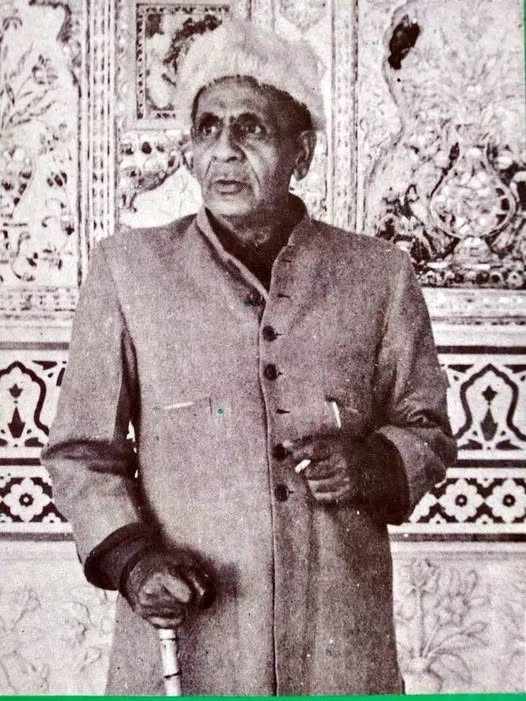The full name of ‘Muslim Brotherhood’ is ‘The Society of Muslim Brotherhood’, which was founded in 1928 in Egypt by Hasan Al-banna. Today, it is present under various names in every country where Muslims are settled. It makes its present either subtly or emphatically. In many countries, it functions with a purely local name.
Hassan Al-banna founded the organisation 94 years ago and he wished that with this organisation, he could go back to the golden age of Islam and establish the caliphate all over again. For this purpose, he needed the conception of several basic ideologies. While Hassan Al-banna was writing the fundamentals of the Muslim Brotherhood Movement, the world was being shaped anew with advent of the idea of nationalism in the midst of World War I, the newly-formed countries, the rise of the United States and the United Nations (initially League of Nations), and the feet of the mighty British Empire were disintegrating. The clear demarcation of countries was about to give a new impetus to British political thought.
The inception of Al-banna’s Muslim Brotherhood also coincided with the immediate aftermath of the Ottoman Caliphate’s collapse. Al-banna believed that if he succeeded in re-establishing the Islamic caliphate in the new world, it would be a big breakthrough. It was not an easy goal though. The British Crown had sensed that the Union Jack flag was going to descend soon all over the world. Hassan understood that the world would change very quickly and a very challenging time awaited Muslims.
Al-banna was a school teacher. He was also an imam in an Egyptian mosque. He believed that politics and personal life should be run according to Islam. He wanted Islamisation of the state, economy and society. He was openly opposed to British expansionism, materialism and also believed that the Egyptian ulema were old and were not taking decisions as per demands of new political realities. Al-banna tried to reconcile the two politically rival ideas together. He believed in the Arab fraternity but did not believe in any idea of nation or nationalism. Rather, he considered the nation as a hindrance. This was his dilemma.
The Muslim Brotherhood initially advocated gradual moral reforms and had no plans for a violent takeover of power. Al-banna wanted the Muslims to do ‘Jihad-e-Nafs’ i.e. ‘Jihad of the soul’ i.e. improving themselves. Al-banna advocated for the faith, health and political renaissance of the people. But with the abolition of the Ottoman Caliphate in 1924, Al-banna declared the armed struggle an important part of his group’s philosophy.
He allowed the formation of a secret military wing within the Muslim Brotherhood, which took part in the Arab-Israeli conflict. Al-banna also began an appeal to the Egyptians for cultural purity. He began to encourage people to leave the western customs. He advocated the imposition of Islamic public morality in the state through censorship and ‘Hudood’ corporal punishment. ‘Hudood’ is an Arabic word which means ‘limit’. It broadly means that citizens must behave within the limits of Islam, if they go outside of them, they should be punished. This punishment should be more physical. This was the time when Al-banna’s thoughts started coming out in the open. The Egyptians were very angry with Britain for the break-up of the Ottoman Caliphate. They believed that perhaps Hassan Al-banna had the medicine for their miseries.
Al-banna is also introduced as a Sufi. He entered into the interpretation of Neo Sufism in spite of believing in the methodology of Asri, Shadhiliyya (Hasafi branch). He learnt this idea of Neo Sufism from Indo-Pakistani author Fazlur Rahman. The term Neo Sufism was originally coined by Rahman. The idea was brought to redefine Sufi interpretations. Those who had established themselves as reformers of Neo Sufism began to believe that Sufi thoughts had received a new zeal for pantheism. The work to redefine thousands of years of Islamic Sufi traditions in Egypt began with the encouragement of Al-banna. Some experts believe that it was Al-banna’s political maneuvering to bring Sufis also in the fold of his ideology and political movement. It was so because when he was establishing the Muslim Brotherhood in Egypt, that period was the time of the departure of the Ottomans and the contraction of the British. Although the British also knew that very soon they too would have to leave the colonies they had occupied. Al-banna needed an easy, non-sectarian, Sunni alliance that would agree to his political views without arguing about Sufism and Wahhabism. Although it is true that Hassan Al-banna’s plan of Islam, politics and caliphate had many loopholes.





